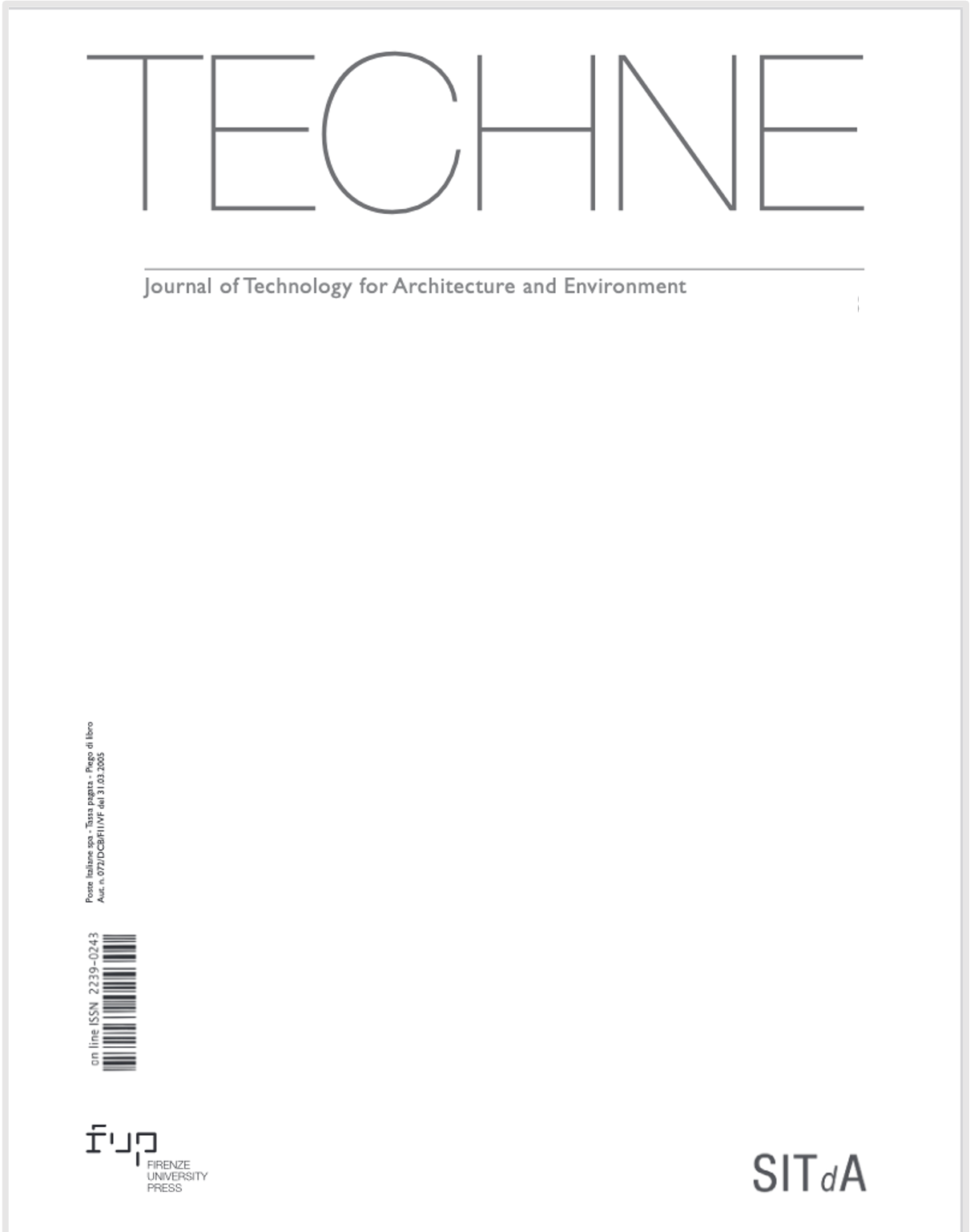The urgency of tackling climate change (IPCC Report, 2024) pushes the operating community to radically reconsider the way of conceiving the regeneration of cities, intervening by design on the physical configuration of urban settlements. The goal is not just the decarbonisation of the built environment, but to look at practices that address the multiple challenges related to achieving climate neutrality, such as the “transformative resilience” approach (Article 2, Reg. 2021/241/EU) and “nature-based thinking”, overcoming the risk of a governance of fragmented implementation processes and integrating adaptation and mitigation actions.
The climatic-environmental challenges (European Green Deal, New European Bauhaus, European Climate Law, etc.) require a medium to long term commitment and a strategic vision by virtue of which the transition modalities, tools and procedures have been revised, thus revitalising the organisation of cities and reforming the production system to operate in harmony with the environment and mankind.
The National Plan for Adaptation to Climate Change (PNACC), the Energy and Climate Plan (PNIEC), the Nature Restoration Law, the Energy Performance of Buildings Directive (EPBD/“Case Green”), the GBC Italia Roadmap and other tools created in the European context provide valuable guidelines for this transition. However, the crucial step is to move from theory to practice, by effectively implementing these strategies and applying them to the specificities of our own urban realities. Cities need to use and manage resources and grey and green infrastructures more intelligently. In addition, the built environment must be redesigned to promote sustainability and resilience, not only of open spaces serving citizens, but also of neighbourhood micro-areas, which are indispensable for integrating buildings and the urban context. Climate neutrality is about emitting less and absorbing more (European Council, 2019), to “set a clear goal and advance rapidly following a holistic and integrated approach that leads to a wide range of cobenefits for sustainable development, such as creating socio-economic opportunities, reducing poverty and inequality, and improving the health of people and nature” (ICLEI, 2020). The reorganisation of project and process chains implies the transition to cleaner coproduction practices, the adoption of low-emission technologies and the optimisation of a circular project management (10 Rs).
It is essential to involve all key actors in this transformation process: local governments, companies, non-governmental organisations and citizens, in their role as collaborators in the development and implementation of effective solutions. Public participation and transparency are crucial to ensure that the decisions made truly reflect the needs and wishes of communities. Furthermore, it is important to consider social and economic equity at all stages of the transition to climate neutrality.
By adopting community engagement approaches and collaboration between all stakeholders, we can make cities more resilient, sustainable and fit for the future. In this direction, two pressing questions arise: what are the most effective measures implemented by the construction sector? What is the cost/benefit or, better, cost-effectiveness of the green transition to be implemented within a reasonable timeframe?
The measures introduced are not all equally effective; we must reckon with the timing and geographical specificities of the context, where neutrality objectives must be implemented through mitigation and adaptation actions, synthesis processes and reflections on the relationship between climate and environmental degradation.
The authors are invited to give relevance to the critical discussion of the outcomes of the studies and design experiments, focusing on the variables of time and place, as well as on the aspects of effectiveness and feasibility, positioning their contribution in relation to the advancement of knowledge and possible application outcomes. In the framework of Climate Neutral challenges, opportunities and directions, issue 29 will gather theoretical, research and project experimentation contributions related to the following topics:
1. Climate Neutrality and Urban Greening
Decarbonisation and carbon sequestration processes related to urban forestation, greening, urban farming, care and enhancement of the vegetated component in the consolidated and historical city, to the strengthening of green infrastructure and green budgeting strategies, etc.
2. Climate Neutrality and Environmental Design
Integrated energy production from renewable sources, deep energy retrofit and bio-climatic design paths, optimisation processes between the built environment and microclimatic factors, morphological aspects, variable properties skins, valorisation of neighbourhood spaces, use of experimental materials with a low carbon footprint, etc.
3. Climate Neutrality and Co-creation Processes
Promotion and development of functional mixity in urban settings and use of digitised decision-making technologies, data- and knowledgebased, for the co-production of services and co-creation of pilot projects, strategic use of procurement procedures, innovative partnerships, etc.
TIMING
Abstract submission: May 22th, 2024
Abstract acceptance: June 28th, 2024
Article submission: September 10th, 2024
Reviewed article result: October 31th, 2024
Reviewed article submission: November 29th, 2024
PUBLICATION DATE TECHNE | 29
30TH APRIL 2025
DOWNLOAD PDF

